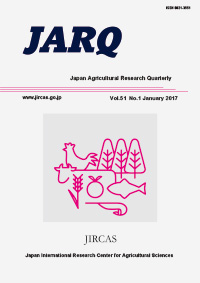Social Safeguards in National and Sub-national REDD+ Initiatives: A comparison based on literature review
| ISSN | 00213551 |
|---|---|
| NII recode ID (NCID) | AA0068709X |

REDD+ is an approach to reduce deforestation and forest degradation, using economic incentives to influence behavior. The need for safeguards has emerged to avoid the negative social and environmental impacts caused by an overemphasis of such economic incentives. In the context of safeguards, in addition to the UNFCCC’s official efforts, voluntary activities (initiatives) by many organizations have attempted to formulate principles, criteria, indicators and guidelines. In this article, we clarified the elements to enhance social safeguards and discussed how those elements are included in each initiative. We reviewed the literature on the SEPC, SESA and REDD+ SES initiatives, and clarified the focal points and problems relating to social safeguards. We found that benefit-sharing is an important aspect of social safeguards, and that more discussions are needed to enhance initiatives. The REDD+ SES initiative has received little criticism in literature to date and has the best-covered elements including “benefit-sharing” among the three initiatives. If more countries adopt REDD+ SES and more cases can be accumulated to identify problems and solutions, it could become a popular initiative in the international community to enhance the social safeguards in REDD+.
| Date of issued | |
|---|---|
| Creator | Seiji IWANAGA Yasuhiro YOKOTA Kimihiko HYAKUMURA |
| Subject |
SEPC (Social and Environmental Principles and Criteria) SESA (Strategic Environmental and Social Assessment) REDD+ SES (Social & Environmental Standards) |
| Publisher | Japan International Research Center for Agricultural Sciences |
| Available Online | |
| NII resource type vocabulary | Journal Article |
| Volume | 51 |
| Issue | 1 |
| spage | 31 |
| epage | 43 |
| DOI | 10.6090/jarq.51.31 |
| Rights | Japan International Research Center for Agricultural Sciences |
| Relation | : J-STAGE |
| Language | eng |
